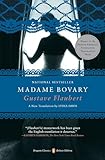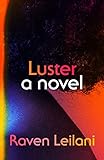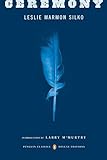The last book I bought before the shelter-in-place order was The Mirror & the Light, which was a celebrity event for me. I had preordered the book, and I went and collected it with a friend who was visiting, the last guest I would have for quite some time, the last lunch inside a restaurant, the last time I worked in the coffee shop, all of that. I read this novel before bed for what seemed like years between approximately March 12 and approximately April something? May something? I don’t know. A commenter on an earlier entry in this series said they don’t want to hear about the homeschooled children. Whoops! By the time I got into bed with this book at night I was worn the fuck out from being the primary caregiver when the playgrounds are off-limits and you just walk in circles around the neighborhood and yell “space” in sepulchral tones and comfort the sad children and make snacks. Sorry it’s tedious to hear about—it was tedious to experience. I’m aware it’s preferable to being dead.
I wasn’t bored by The Mirror & The Light, but I had three brain cells to rub together, so it took me for fucking ever to read this book. And yet when I got to the last third? fourth? I started to pick up the pace, and I could feel what she was doing, not only because I already knew more or less what happened to Cromwell, but because of some authorial magic, and by the denouement there was beautiful catharsis to my creeping dread and endless cooped-up days and I wept with the style and power of it. That was a signal reading moment in a year when there were few.
Before mid-March I read Uncanny Valley, which is also written with great style, and which engages deeply with an environment that is incredibly rarified and niche yet has rapidly become responsible for the water we all swim in without realizing. I read Trust Exercise and while I am still mystified by the structure and final section and had to ask the Internet what everyone thought happened, it seemed that I was reading something dynamic and mesmerizing at the time of reading.
After mid-March books were competing with the circumstances of daily life, which was spent trying to competently parent my young children when normal avenues for their diversion were shut, and doing paid work, in addition to things like blurbing books (10) and reading manuscripts (4), and volunteering for a ballot measure in my town. When I had no paid work I felt idle and worried about money but the minute I obtained an assignment I panicked about when and how exactly I would do the work when life was full of on-the-nose moments of screaming “I’m in the bathroom” through a flimsy plastic accordion door or children saying things like “I don’t want you to work, Mommy!” One is in the room with me right now and she wants me to bite all the skin off of her apple so she can eat the flesh underneath, and she is standing on the printer.

I had a long-standing assignment to write an introduction for a reissue of Count Belisarius by Robert Graves, so eventually I buckled down to read this at night in bed, and it was also very long with a lot of confusing history and wars, and ultimately a sort of nihilistic reminder that we are all teeny tiny hanks of bone and fur in the owl pellets of history. I don’t know who the owl is in this metaphor but it’s not us. I enjoyed the book and think it has a lot to say to us—which you can read in the introduction, completed by the skin of my gd teeth in the wee ours of the night.
Books were also competing with my compulsive doomscrolling (thank you to Karen K. Ho for this word) and with articles with infinite deployments of the word “grim milestone” and with my lifeline text threads with friends and with my third? fourth? rewatch of The Sopranos, which I did lying next to my sleeping husband with headphones in the dark in the middle of the night knowing I was hours late going to bed, that my misery was only compounded by sleeping five hours but feeling so fried and touched-out from interminable days that I could only be soothed by the frictionless pleasure of television in the quiet night. Most books lost to this arrangement and it wasn’t personal. There were a lot that I loved to read and yet never managed to get to the end of.

Early in the pandemic my older daughter expressed interest in graphic novels and comics so I googled and ordered a pile of them and we read them together. We read Sisters and Smile and Hex Vet and Hilo and Black Panther and Unbeatable Squirrel Girl and Princeless and Ladybug Girl and Cat Noir (ugh) and Calvin and Hobbes and Tiny Titans (ugh) and Superhero Girls (ugh) and others I can’t remember. I spent an enormous amount of time reading these to her, panel by panel, and wishing that reading to someone was all it took to teach them how.
She was just shy of being able to read when
the pandemic started and I found the timing of this heartrending. I’m an only
child and spent many solitary hours reading and feeling soothed and befriended by books, truly formative hours. She is not an only child but she
has been very lonely and I wondered how she might have benefited from this
escape hatch. Thinking about those hours of my childhood is bittersweet because
it is precisely that form of reading that was not available to me, not just this
year but any recent year, not just in the sense that there are precious few
uninterrupted hours, but because my brain feels irrevocably altered by
circumstances to the extent that this experience of reading—the self-effacing
and abandoned reading that is to the book what REM sleep is to the bed—feels
lost to me.

When it was early enough in the pandemic, a couple of months maybe, that I still retained some notion that I would soon return to a larger “work in progress,” I read Eight Months on Ghazzah Street because I was still buzzing from the ending to The Mirror & the Light and because it’s short and because I’m interested in how Anglo-Americans write the so-called expat experience. While the novel, which was written after Mantel spent several years in Saudi Arabia, was at the “craft” level fluid and well-wrought, it was an unpleasant book that radiates phobia–Islamophobia and claustrophobia beyond the manufactured claustrophobia of its plot, the sign of an absence of authorial distance. It’s sort of the opposite of the way that Mantel dealt with the misty European past in the Cromwell novels–those knolls and cloisters approached with expansive curiosity reflected in maximal yet superbly controlled prose.

In June I read White Negroes and despite its author’s elegant point elsewhere on the inefficacy of reading lists to edify white readers it’s a book I think should be taught in high schools, by good teachers, for what it says about appropriation and white engagement with Black art and culture.

In July we went camping on a mountain where The Sopranos was not available and I tried to lose myself in an old favorite, At Lady Molly’s (Vol. 4 of Dance to the Music of Time), and in the camp chair I felt briefly happy, but not so happy that I could embark on a reread of a 12-volume epic just to recreate one outdoors night of pleasure.

In August we went camping at a lake where The Sopranos was likewise not available and I read Madame Bovary, which I have read before but not in Lydia Davis’s translation. Davis’s introduction was revelatory to me: “…this was just the sort of action that really interested Flaubert: the subtle shifts of feeling created in a reader by description and by psychological analysis. ‘I maintain that images are action,’ he says. ‘It is harder to sustain a book’s interest by this means, but if one fails, it is the fault of style.’” I don’t know if this is always true—Hilary Mantel has style and yet it did not solve the problems of Eight Months on Ghazzah Street—but it felt like a life-changing statement in the moment I read it by a campfire and perceived that my three brain cells were stirring as though they might one day write again.

One day after five months? Six months? my friend Meaghan O’Connell who is also a writer who is primarily caregiving left the book The Spare Room by Helen Garner on my front porch. She knew just what would cheer me up and make me stop compulsively watching Sopranos. We texted about how great it would be to be able to write a book like that, about a relationship between two women at a perfectly ordinary but epochal moment in late middle age.

That month I also I tore through Luster in the course of a few days because I was jolted by its wry depressive voice, its hapless but gimlet-eyed deadpan, and relieved by the delicious and singular and lately elusive feeling of reading with sheer enjoyment and appreciation. That was a highlight.

The first days of September were what I am now thinking of as Halcyon days, where I had both children all day but online kindergarten misery hadn’t yet started, and I had a new strategy of taking them to a river beach, where it was quiet during the week and the water was calm and where I felt for a few sunkissed afternoons that my extreme proximity to them during these months might actually be a gift and not something causing them damage. The book I read during these beautiful mid-mornings was Lakewood, a muted, uncanny, potent story of medical harm and racism that eerily fits the times—it is wrapped up in the feelings of uneasy, conditional calm of that short period.

Before the election I had a spate of wakeful nights and I read Red Pill, a fascinating novel touching upon a lot of terrifying things about the Internet that had been on display everywhere but also in my town as right-wing trolls doxed and stalked protestors and held rallies and I read articles like this one about Stephen Miller and the conditions that create him. The novel sort of seemed to fall apart at the end but it was also right before the election when things, me among them, were broadly falling apart, so it’s hard to tell.

This week I took Ceremony by Leslie Marmon Silko off the shelf, where it sat unread among a set of new Penguin Classics. I loved the author’s own introduction to this edition, about writing the novel during a lonely winter in Alaska while her kids were in school and daycare she paid for with a grant. She wrote letters to her friends and she wrote the book on a borrowed law office table she painted red, and she used the writing as a conduit to return to the southwestern landscapes that she knew and loved and pined for. This made me feel a surge of hope, somehow. The novel itself, which I am almost finished with–which has felt good to return to every night–is about a man who has been ground through America’s gears and history’s gears and is looking for a way to be healed. I worry about how it’s going to end.
I realize that every time I write a Year in Reading I’m undergoing some psychic melodrama, and books are always the elusive lover who darts tantalizingly in and out of life, and I spin a fantasy about how much better it would be if I could be with them all the time. Last year I wrote up my entry at my grandmother’s house and reflected on how keyed-up I had been most of 2019. It turns out that would be the last time I ever saw her because she died last week. What made me miserable this year is so much more consequential and vast in scale than my grievances of years past. When “this is all over,” while I will still be me (best-case scenario), I pray that if nothing else I will have some fucking sense of perspective.
In any case I remind myself that a book or books or reading was never going to be the thing that would fix what was wrong with this year. It will take a vaccine to do it, and that’s not even the half.
More from A Year in Reading 2020
Do you love Year in Reading and the amazing books and arts content that The Millions produces year round? We are asking readers for support to ensure that The Millions can stay vibrant for years to come. Please click here to learn about several simple ways you can support The Millions now.
Don’t miss: A Year in Reading 2019, 2018, 2017, 2016, 2015, 2014, 2013, 2012, 2011, 2010, 2009, 2008, 2007, 2006, 2005
The post A Year in Reading: Lydia Kiesling appeared first on The Millions.
Source : A Year in Reading: Lydia Kiesling








